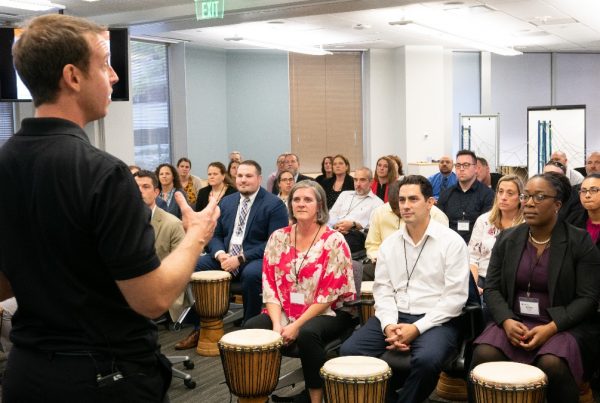Psychological safety is an environment in which teammates feel it is safe to contribute, collaborate, and take risks. It’s a culture that doesn’t punish or embarrass people for speaking up, raising concerns, or asking bold questions. It does not mean everyone is always nice, but it does mean that there is space to disagree, embrace conflict, explore differences of opinion, and brainstorm out loud.
The benefits of psychological safety are numerous, and its absence can be costly. If team members don’t feel safe speaking up, disengagement creeps in, opportunities are lost, and failures occur that could have otherwise been avoided. In contrast, when team members feel psychologically safe, they can address areas of needed improvement, voice innovative ideas, and constructively innovate. As David Altman, the COO of the Center for Creative Leadership, says, “People need to feel comfortable speaking up, asking naïve questions, and disagreeing with the way things are in order to create ideas that make a real difference.”
Here are my top three suggestions for creating psychological safety in the workplace. These come from decades of experience building high-performing teams of musicians with cultural backgrounds that span the globe.
Lead with Listening
If you’re anything like me, when you’re supposed to be listening, you’re actually thinking of what you’re going to say next. It’s natural, but the impact is that our teammates don’t feel heard, and we miss the opportunity to hear what they are really saying. When we make an effort to begin by truly listening, it opens a space of safety for our teammates and allows us to hear their input as a contribution. Not only do we create psychological safety, but we get a better understanding of what’s happening in our organization, and we can glean clues about solutions and innovations.
Mistakes Happen
If you’re a human being and you are reading this article, you are going to make a mistake at some point in your future. And so are your teammates. Letting mistakes be okay is one of the keys to psychological safety. In fact, letting mistakes be okay is essential for a culture of growth where appropriate risk-taking leads to innovation. The next time you make a mistake, instead of hiding it, make sure your team knows about it and can learn from it as well. This brings us to our next point…
Learn, Learn, Learn!
Instead of approaching issues from a place of blame, approach them by inquiring into what there is to learn. Fault-finding creates a climate of defensiveness and disengagement in which issues become protracted and mistakes tend to be repeated. Facing problems with curiosity and a collaborative mindset creates the psychological safety necessary for creative solutions to be brought forth, learning to be captured, and progress to be made.
Learn how to use our experiential music programs to build psychological safety amongst your team. Connect with us by filling this form or call us at 800-273-1465.





